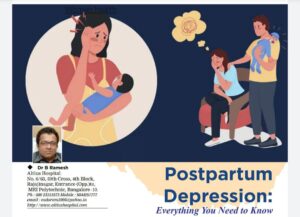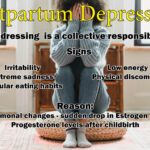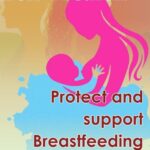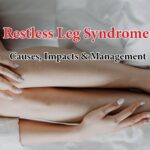Postpartum depression is a relatively common condition that can affect women after they give birth. Untreated postpartum depression can be fatal for new moms and their children. This article has more information about postpartum depression and how to get help if you are struggling.


What is postpartum depression?
Postpartum depression, also known as postnatal depression, is a type of mood disorder that can affect women after they give birth. It is a relatively common condition, influencing between 10 and 15 percent of new mothers.
Pregnancy and childbirth can trigger chemical, social, and psychological changes in women that lead to postpartum depression. The phrase refers to a number of physical and emotional adjustments that many new mothers experience. Medication and counseling are both effective treatments for PPD.
Symptoms can include feeling sad or hopeless, mood swings, problems with sleep or appetite, feeling overwhelmed or anxious, and thoughts of harming oneself or the baby. If you are experiencing any of these symptoms after giving birth, it is important to seek help.
Signs and Symptoms
Postpartum depression is difficult to detect. Following childbirth, many women experience these symptoms:
- Trouble sleeping
- Appetite changes
- Severe fatigue
- Lower libido
- Frequent mood changes
These symptoms, which can also be found in other types of major depression and aren’t typical following childbirth, include:
- Being uninterested in your baby or feeling like you’re not bonding with them
- Crying all the time, often for no reason
- Depressed mood
- Feelings of worthlessness, hopelessness, and helplessness
- Thoughts of death or suicide
- Thoughts of hurting someone else
- Trouble concentrating or making decisions
- Severe anger and crankiness
- Loss of pleasure
Untreated postpartum depression can be fatal for new moms and their children. If a new mother experiences the following symptoms, she should see a doctor:
- Symptoms persist beyond 2 weeks
- They can’t function normally
- They can’t cope with everyday situations
- They have thoughts of harming themselves or their baby
- They’re feeling extremely anxious, scared, and panicked most of the day
Causes of Postpartum Depression
Despite the fact that there is no one specific reason for postpartum depression, these physical and emotional concerns can trigger it:
1. Hormones – The decrease in estrogen and progesterone after delivery may be a factor. Other thyroid hormones produced by your gland may plummet significantly, making you feel tired, sluggish, and sad.
2. Lack of sleep- When you’re sleep-deprived and overwhelmed, even little issues may become challenging to solve.
3. Anxiety- You may be concerned about being able to care for a newborn.
Self-image. These symptoms might affect your self-esteem, make you question your identity, or cause you to believe that you’ve lost control over your life.
Any of these issues can contribute to postpartum depression.
Types of Postpartum Depression
The three words used to describe the emotional swings that mothers may experience after childbirth are:
- Following childbirth, up to 70% of females are afflicted by the “baby blues.” You might have extreme mood swings, such as feeling delighted one minute and sad the next. You may shed tears for no apparent reason and feel irritable, disagreeable, restless, anxious, lonely, or depressed.
- The baby blues can range from a few hours to 1 to 2 weeks in duration. Baby blues seldom need treatment from a health care provider. Joining a group of new moms or speaking with other parents can help.
- Postpartum depression (PPD) is a type of sadness that can begin any day or even weeks after childbirth. PPD can strike anybody, not just the firstborn child, following the birth of a child. You might feel sad and miserable, as though you were experiencing the baby blues, but you’ll notice that they’re much more intense.
Postpartum Depression can make it difficult for you to complete the tasks that you need to do on a daily basis. You should see a health care professional, such as your OB/GYN or regular doctor, if your capacity to function is hampered. This doctor will screen you for depressive symptoms and devise a treatment strategy based on those factors.
If you do not get treatment for PPD, your symptoms can get worse. While PPD is a serious condition, it may be treated with medicine and counseling. Postpartum psychosis is a severe mental illness that can strike new moms. This sickness may manifest itself rapidly, with most cases occurring within the first three months after delivery. Women might lose touch with reality and hear voices (hearing things that aren’t real, such as a person talking) as well as delusions (believing strongly in things that are irrational).
Hallucinations (seeing things that aren’t there) are less prevalent. Other signs include insomnia (not being able to sleep), restlessness, and strange emotions and actions. Women who have postpartum depression require immediate therapy and almost always need medicine. Women are sometimes hospitalized because they are a danger to themselves or others.
How to prevent Postpartum Depression
If you have a history of depression, tell your doctor as soon as you find out you’re pregnant, or if you’re planning to become pregnant.
1. During pregnancy– Your doctor can keep an eye on you for symptoms. Support groups, counseling, and other therapies may all help with minor depression symptoms. Medications, even during pregnancy, may be used by your doctor.
2. After your baby is born- To look for symptoms of depression, your doctor may recommend an early postpartum check-up. The sooner you’re diagnosed, the sooner you can start treatment. If you have a history of postpartum depression, your doctor might prescribe therapy as soon as the baby is born.
Treatment for Postpartum Depression
Postpartum depression is classified differently, depending on the nature of the symptoms and how severe they are. Antianxiety or antidepressant medicines, psychotherapy, and participation in a group for emotional support and education are all possible therapies.
In the case of postpartum psychosis, antipsychotics are frequently used to treat it. In many circumstances, hospitalization is required.
Don’t assume that you can’t take antidepressants, anxiety, or even psychotropic medications if you’re breastfeeding. Consult with your health care provider. Many women take medication while breastfeeding under the supervision of their doctors. This is a decision to be made between you and your doctor.
If you’re looking for expert and affordable medical care, visit Altius Hospitals or call +91 8882799799











